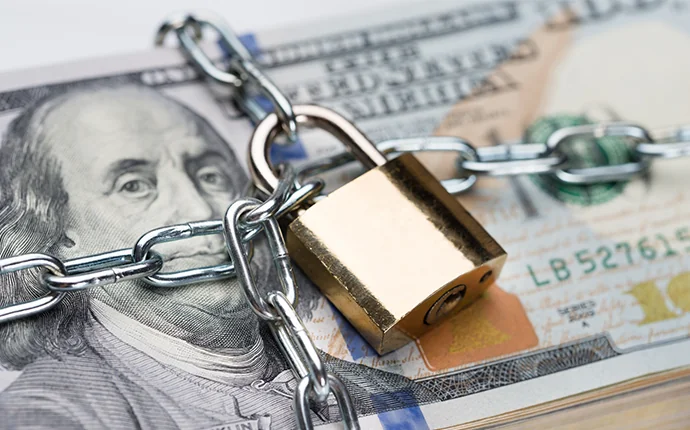Is Your Money Safe?
June 21, 2023

The failure of several banks this year has left many people wondering if the money they have in savings and checking accounts is safe. According to a recent Gallup poll, 48% of US adults say they are concerned about the money they have in banks and other financial institutions. For some, this year’s bank failures may bring back scary memories of The Great Financial Crisis, the recession and bear market of late 2007 to early 2009 that was marked by several bank failures.
However, this year’s collapses of Silicon Valley Bank (SVB), Signature Bank, and Silvergate, as well as the rescue of First Republic Bank, appear to be isolated incidents stemming from operating decisions at those specific banks rather than a systemic issue within the banking sector. Still, there are important lessons for all who have money on deposit with banks or credit unions.
Know your protections
The first line of defense against losing money in a bank failure is insurance. Bank customers are protected by the Federal Deposit Insurance Corporation (FDIC), which insures each customer up to $250,000. That limit is “per depositor, per FDIC-insured bank, per ownership category.” So, an individual savings account is covered up to $250,000, whereas a jointly-held account would be insured up to $500,000 ($250,000 per depositor). A married couple could protect a million dollars at the same bank by each having an individual account and together having a joint account.
Credit unions are protected by either the National Credit Union Administration (NCUA), a federal agency, or American Share Insurance (ASI), a private insurance company. Similar to the insurance provided to banking customers through the FDIC, the NCUA guarantees the deposits of credit union customers up to $250,000 per individual account holder, or $250,000 per person for joint accounts. ASI protects each account up to $250,000, regardless of how many accounts a member has. Those accounts include checking accounts, savings accounts, money market accounts, CDs, IRAs, and more. Accounts at Christian Community Credit Union are protected by ASI.
In the unlikely event of a bank or credit union failure, the insurance providers say customers can typically access their account balances within three days.
Look for the FDIC, NCUA, or ASI logo on the website of the bank or credit union you use.
Other prudent steps
Your best protection is to stay within the insurance limits. The FDIC offers a helpful Electronic Deposit Insurance Estimator that enables you to calculate how much of the money you have on deposit at a bank is protected. The NCUA offers a similar tool. Anyone who keeps more than the insured amounts at a bank or credit union would be wise to spread their money across multiple institutions to make sure their money is fully insured.
Another prudent step is to use a bank or credit union that serves a broad base of customers. The banks that got in trouble this year were focused on niches, such as business customers in the tech and venture capital spaces (Silicon Valley Bank), the cryptocurrency sector (Silvergate), and wealthy clients generally (Signature Bank). To use SVB as an example, many of its small tech company customers had struggled since 2021, and their cash withdrawals forced SVB to sell a portion of its bond holdings, which had lost value. When it first became known that SVB was in trouble, word quickly spread among the tightly connected tech venture capital community and a bank run was on. Working with a bank or credit union that serves a broader base of individuals, businesses, or ministries can add some protection.
Matt Bell is the author of Trusted: Preparing Your Kids for a Lifetime of God-Honoring Money Management. He speaks at churches and conferences throughout the country and writes the MattAboutMoney blog.
This article should not be considered legal, tax, or financial advice. You may wish to consult a tax or financial advisor about your individual financial situation.



